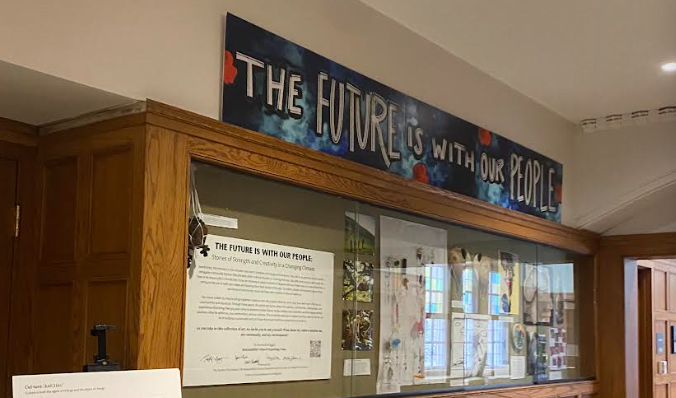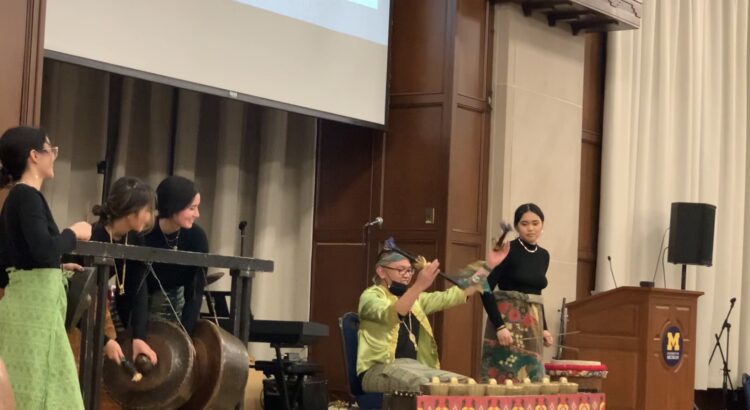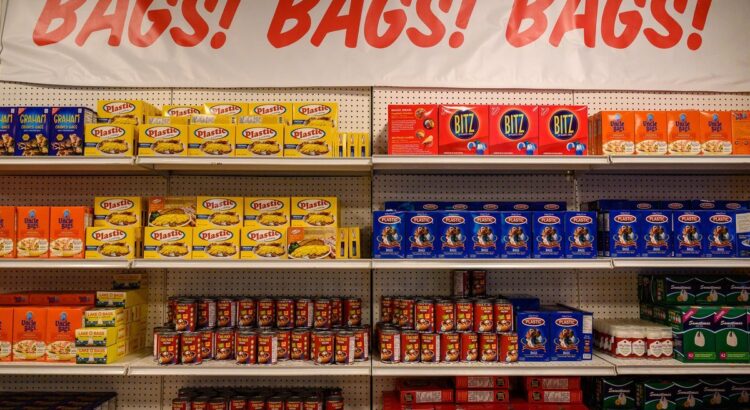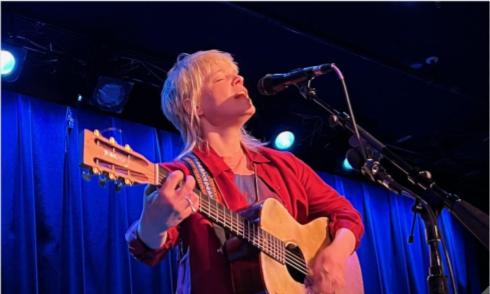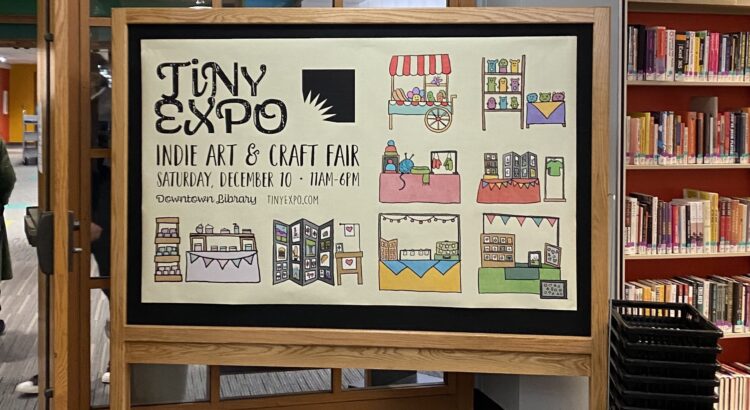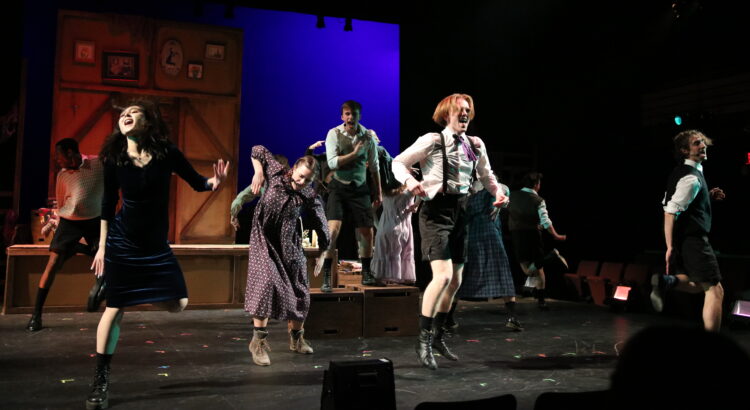On the first floor of the Michigan Union there is a showcase full of stories, small moments captured in time that discuss the complex, yet integral, relationship between students and the environment. Amidst a time of climate crisis, this exhibition aims to remind us of the essential ways that we can heal through community, culture, and relationships, and how through these experiences we may discover paths to a better future. “The Future is With Our People” is an art exhibition created by the Student Life Sustainability Cultural Organizers and I cannot recommend it enough. Seriously. Go spend time with it. While you are at it, check out the Cultural Organizers and get familiar with who they are and what they do here — you will not want to miss out.
The opening ceremony of the art installation, held in the South Lounge of the Union last Monday, was filled with music, storytelling, laughter and community. A group of ~10 students and members of the UM community, called to share stories of strength and creativity in a changing climate, came together to share these pieces of themselves. It was the perfect extension of the exhibit itself, allowing the flow of stories to seep into the audience through different forms of performing arts.

The exhibit, on display until February 24th, is a collection of art through a variety of mediums that showcase the artistic ways we can have a conversation about climate and our place within it. The driving question behind the work is this: What about your culture sustains you, your community, and your environment? It is a beautiful web to weave between the shared sustainability between peoples and their environment, each being essential to the other. The artists that are featured allow the audience to look into what this relationship looks like for them. Although I wish the exhibit was given a larger space, its impact cannot be understated; I guarantee that each piece will make you think differently about how people connect with the environment, and the importance of culture and community within that.

Each participating artist had their own unique piece of art and story to tell. Artist Shiryn Anissa Noor Affendi used clay to sculpt one of her pieces, “Labu Sayong,” representing a traditional Malaysian method of using a hollowed out gourd as a water container. She discussed the ways she must find connections between her heritage and her experience at Michigan in order to stay centered. Another artist, Zoi Crampton, collected plastic from the Great Lakes and threaded them together with intention to make a jingle dress, a teaching rooted in Crampton’s Anishinaabe culture, to send prayers toward healing community. Crampton ties this form of art to the healing of the Great Lakes.
I could go on and on about these artists and their stories, but it would make much more sense for you to go see it yourself. This exhibition deserves more time and space at our University, but I am glad to see it for the time that it is here. Thank you to the Cultural Organizers and every artists that participated and created this absolutely beautiful space on our campus.

